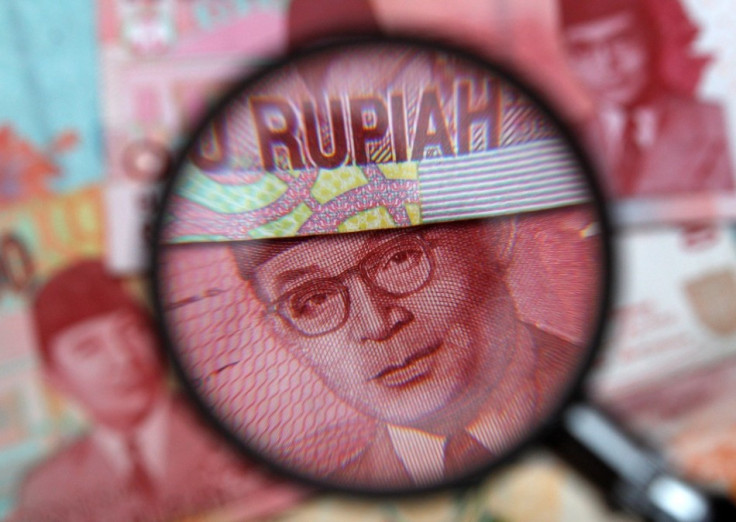Indonesia Rupiah Falls After Fed Reserve QE Taper Prospect Triggers Capital Flight

Indonesia's rupiah weakened beyond 12,000 against the US dollar on 28 November, a first since 2009.
The currency dropped after a failed debt sale put the focus back on how the prospect of a reduction in US stimulus, in the near future, was sucking out funds from the country.
The rupiah dropped to 12,028 to the US dollar, its lowest since March 2009, before trading 0.9% weaker to 11,993 at 14:32 hrs in Jakarta, data from local banks showed.
The currency has dropped 2.5% so far this week.
In the offshore market, one-month non-deliverable forwards dropped 0.4% to 11,980, Bloomberg data showed.
Indonesia raked in just $190m (£116m, €140m) in its first domestic dollar-bond auction, well short of its $450m target, the Ministry of Finance said on 25 November.
Meanwhile, stock exchange data showed that global investors sold $354m worth of Indonesian stocks between 1- 27 November.
Southeast Asia's largest economy, burdened by a fiscal and a current-account deficit, needs foreign investments to support its currency. The debt sale was designed to bring in more dollars, amid rising outflows.
However, foreign funds are bound to exit the country when the US Federal Reserve starts trimming its $85bn-a-month bond buying stimulus, a move that will increase interest rates in the US and render emerging markets less attractive.
The rupiah could plunge if investors flee.
"The disappointing bond auction shows there is still an imbalance in dollar demand and supply," said Irene Cheung, foreign-exchange strategist at Australia & New Zealand Banking Group in Singapore. "The 12,000 level is a very important psychological level, so crossing that would make the market even more nervous," she told Bloomberg before it was breached.
"Right now, Bank Indonesia is trying to reduce the currency's volatility, so that people who have dollars want to sell their dollars because there's stability in the market," said Bank Indonesia spokesman Difi Johansyah.
Rupiah Oversold
"The rupiah is oversold as there are no strong reasons for this rapid decline," said Mika Martumpal, head of treasury research and strategy at PT Bank CIMB Niaga in Jakarta. "The significance of the 12,000 level is reduced by improved foreign reserves and the narrowing current-account gap, which show government measures are working."
Jakarta relaxed mineral-export quotas and raised import taxes on luxury goods in a bid to reduce a current-account deficit.
The shortfall narrowed to 3.8% of GDP in the July-September quarter, from a record 4.4% in the preceding quarter, government data showed.
Foreign reserves dropped 18% from the end of last year to $92.7bn in July, their lowest since 2010, according to Bloomberg.
However, the central bank's foreign-currency holdings rose to $97bn in October.
The central bank has raised its benchmark interest rate by 1.75 percentage points this year to 7.5%. Higher interest rates could lure foreign investors, and inflows could eventually protect the economy from the instability expected when the Fed winds down its ultra-easy monetary policy.
Economic growth in Indonesia slipped to its slowest pace in nearly four years during the July-September quarter. The economy expanded by 5.62% on an annual basis during the third-quarter, down from 5.81% in the second quarter.
US Data
The number of Americans claiming government-sponsored unemployment benefits fell for the sixth time in seven weeks, data showed on 27 November.
Initial claims for jobless benefits, a measure of layoffs, decreased by 10,000 to a seasonally adjusted 316,000 in the week ended 23 November.
Meanwhile, a gauge of US manufacturing activity struck an eight-month high in early November, suggesting that the world's leading economy was gaining strength.
Positive data could force the Fed to trim its asset buys as early as 18 December.
© Copyright IBTimes 2025. All rights reserved.






















